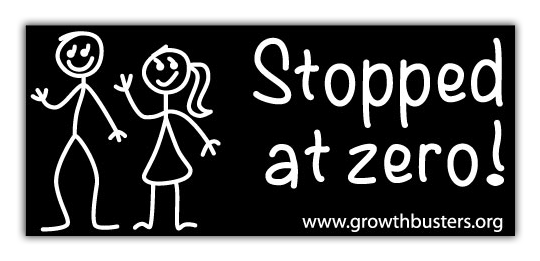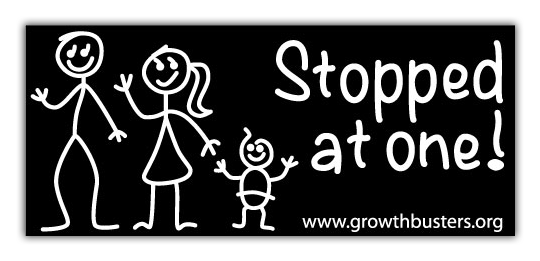
Drink More Wine, Eat More Chocolate (Podcast Episode 21)
Life expectancy is declining in one of the richest countries on Earth, the U.S., due to suicides and drug overdoses. Several noted millionaires have checked out in the last few years. Why? Do you fear you’re a failure because you aren’t ahead of the Joneses? Are you unhappy because you don’t have it all? Are you short on time or money? Are you constantly scrapping for something you don’t have? The conversation in this episode may start you on a course that can set you free and bring you peace of mind. It may be your key to sustainable living. GrowthBusters’ Dave Gardner is joined by Jennifer Cohen and Gina LaRoche, authors of The Seven Laws of Enough: Cultivating a Life of Sustainable Abundance for a discussion of “Sustainable Abundance.”
Also in this episode: David Attenborough’s recent COP 24 address on behalf of the people of the world. Plus, do you want help reducing your carbon footprint? There’s a new UN social media program (see links below) that may help.
LINKS:
Join or make a one-time donation to GrowthBusters (yes, we’re a 501C3 nonprofit!)
GrowthBusters Podcast Facebook Page
Video of David Attenborough Address
Book: The Seven Laws of Enough
Subscribe (free) so you don’t miss an episode:
Tags: Climate Change, happiness, overconsumption, sustainability
Trackback from your site.








Eeric Rimmer
| #
Thanks Dave – for continuing your onslaught !
Eric
Reply
David Oldroyd
| #
Really helpful in maintaining one’s efforts to stay active – especially the notion of donating a tithe of both time and money to helping self, others and society (SOS) and ultimately the planet. I’ll try to measure and treasure my efforts to tithe, inspired by these ladies as well as Dave’s tireless growth-busting.
Reply
Dave Gardner
| #
I appreciate the kudos, guys! Besides financial support for this skinny non-profit, your encouraging words really fuel my work.
Reply
darie mclaughlin
| #
Negative growth economics put forth in the Federation of States as a little piece of Tobacco Legislation dictating Negative Growth Economics as the legal peacetime economy of the Nation.
Along with the Common Law Practice pinning the tricameral judiciary to the populace. The profit from of drugs made by manipulating the flower of human nutrition criminalized to create an economy, once accepted by society, belong to the veteran and widow.
A simple return to the #ruleoflaw will provide for all the nuances of sustainable economic growth.
Of course you understand any population of 500 encourage to do so is a population problem and approaching 5,000 is a population explosion of dire consequences. Needing an engineered means to an end immediately.
Urban growth is either sapian and metropolitan or like cheese and part of culture. Insect cosmopolitan society. The nature of a sapian city is to provide a place for a people to go away peacefully leaving as little trace as possible.
Preservation. Period.
Reply
Tina
| #
Boring, with no substance. I got 18 minutes in and still no word addressing the title “drink more wine, eat more chocolate.” Lot’s of gobblety-gook about the so-called “economics of scarcity” and “sustainable abundance” but all of this is meaningless without facts and figures. Let’s be honest, the poor have the most children in this world, and that poses a great question? Why are they having children they can’t provide for in the first place? We have been feeding the poor with billions of dollars of tax payers money, and hundreds of charity organizations for decades, and the only thing we have gotten for our trouble is more starving children. That’s enabling the population problem. And what is with this nonsense about being murdered for the color of your skin, the inference being what? That whites are murdering blacks? Let’s look at the facts: Blacks represent 13.7 percent of the U.S population and yet commit over 40 percent of all murders. They also commit TWICE the number of interracial murders, ie, black on white killings. Check your facts please and provide some substance. As to poverty, if you don’t have money to provide for them, don’t have kids. Simple as that. Finally, stop whining about “inequity and injustice” and tell me what we can do to solve the problem.
Reply
Dave Gardner
| #
Tina, I’m sorry you were bored. It sounds like maybe this isn’t the podcast for you. But, just in case, let me address your comments here and shed a little light for you on the positions I take on the podcast and the positions I respect:
1. A child born in the overdeveloped (rich) world will have many times (as much as 60X) the impact of a child born into poverty. I don’t think it’s productive to blame people for having too many children. I think it’s more productive to promote more informed, responsible family-size decisions by everyone, and to do all we can to make those decisions easy, affordable and applauded.
2. Would you choose to be black? I think not. Even today, it’s more likely you’d be shot by a police officer, and more likely you’ll run into people who will prejudge you and assume the worst about you. We have a long legacy of mistreating ethnic minorities and a long history of exploiting those in poorer nations.
So here at GrowthBusters if we were to issue any blanket indictments, it wouldn’t be against the poor or people with black or brown skin, it would be against the wealthiest people on the planet (and by wealthiest I would include myself and the vast majority of us in the overdeveloped industrialized world). Let’s help the poor move to a smaller family norm, yes. But let’s also help the rich take responsibility and have even fewer children than we do now, and shrink our consumption to a level that leaves some planet for everyone.
Reply
Tina
| #
Again, check your facts, I’ve cited references below and the facts they provide contradict all your biased assumptions. I blame people for their choices, People need to take responsibility for their own lives. Poverty isn’t about the color of your skin, your zipcode or the country you live in. Poverty is about the choices you make. Having children you can’t support is the number one reason people live in poverty. If you don’t address that fact all you are doing is deflecting blame, making excuses, and throwing money at the problem. Second, blacks are actually LESS likely to get shot by police than whites. “The Myth of the Racist cop, WSJ.” https://www.wsj.com/articles/the-myth-of-the-racist-cop-1477261025 Finally, stop worrying about consumption and start looking at the number of consumers. The poor add 83 Million starving infants to this world every year, and it’s those sheer numbers that cause environmental problems. It’s the poor who slash and burn forests to grow crops because they are hungry. It’s the poor who poach endangered species. It’s the growing numbers of people that are increasing consumption. All your podcast is doing is talking around the issue, and you are preaching only to the choir. If you want to make a difference, address the poor, who chose to have children they can’t support, and then rely on the rest of us to take responsibility for their choices. In the US, 110 million people are receiving government assistance; The overwhelming majority, are two parent families (15 percent) and single mothers with children (55 percent). https://www.creditdonkey.com/welfare-statistics.html And that number is continually growing. At some point, you are going to have to stop throwing money at the problem and address the problem itself. That problem is population growth.
Reply
Dave Gardner
| #
Perhaps start by reading https://www.theguardian.com/global-development-professionals-network/2017/jan/14/aid-in-reverse-how-poor-countries-develop-rich-countries
Next, try taking this test to estimate your ecological footprint: https://www.footprintcalculator.org/
Unless your lifestyle is as simple as the average Vietnamese, then you’re part of the problem, too. I know I am.
BLAMING others, and not acknowledging and working on our own contributions to the problem of overshoot, is not a great strategy for effecting change. In fact, it’s a terrible strategy. Who is going to take your advice if you’re not willing to do your part? If you think about it I hope you might agree. We all share some blame, but instead of pointing fingers while we sit on our bums, why don’t we all help one another improve our lives and the planet?
Reply
Tina
| #
I am not interested in more whiney websites listing “inequities.” I am only interested in the facts. Your podcast clearly shows you don’t have them. Stop pointing fingers of blame at the “rich” and start looking at how we can stop population growth. Carbon Footprints are meaningless until you start multiplying. In 1980, Sub-Saharan Africa’s population was at 370 million; today it is over 1 billion. By 2050 it double again, to 2.2 billion. Every year, world population increases by another 83 million. If this doesn’t seem like a more substantial problem to you than petroleum vs electric autos, you need to look deeper into the issue. Those “poor” people are multiplying exponentially while the “rich” are not even reproducing a replacement level. In addition, all those poor people are moving to western countries to increase their consumption, and this mass migration is increasing in volume every year. Check your facts. Get some substance.
Tina
| #
For decades now we’re been sending billions of dollars in taxpayer money overseas to foreign governments, and bringing over millions of immigrants from the 3rd world to exploit them for cheap labor, tax revenue, and votes for politicians. Meanwhile, immigrants on welfare have tripled since 2011 and there are now an estimated 43 million immigrants living in the U.S., with more coming every year. Increased immigration has also meant higher taxes for wage earners and stagnating wages due to increased competition, while inflation on the prices of everything from food to housing continues to rise, due to the unintended conflicts of hemorrhaging supply and swelling demand.
The fact that world population is increasing — solely in third-world nations — by 83 million a year, also means that the effects of immigration in reducing poverty are a drop in the bucket next to the coming flood. Essentially, emigration is being used as a pressure valve for the exponentially growing populations of developing nations, and robbing those nations of the best and brightest minds that are needed for economic development.
Then too, bringing over poor immigrants is playing whack-a-mole with so-called financial “inequities.” It’s a band-aid on a global population problem that begins with cultural dictates that demand large families and creates swelling populations that in turn gives rise to increasing scarcity of food and water, violence over land and resources, poverty, crime and other issues that drive the mass migrations we are seeing today.
The rapidly growing populations of our world is like a house on fire, but instead of putting out the flames we are throwing fuel on the conflagration. By continually throwing money at foreign countries to address so-called “inequities” the financial boons of our investments are used to feed increasingly expanding populations – that is, the more people we feed, the more babies that are born.
Does anyone see what is wrong with this picture? When do we stop throwing money at the problem and finally start addressing the problem?
Reply
RB
| #
Tina,
Looking at the USA:
The top 5% of the USA population owns 90% of the USA. This isn’t just a financial inequity, it is a disaster.
5% of the USA population is struggling to maintain their outrageous wealth while “we, the people” in the bottom 95% are struggling to survive.
The USA doesn’t have a population problem, it has a GREED problem. From what I’ve heard and read, the entire planet is suffering from this cult of greed at varied, but increasing rates.
I agree, let’s stop throwing money at the top 5% and address the real problem. GREED.
Using the rhetoric of greed and racism is not helping you defend your perspective.
Reply
Kythe Mackenzie
| #
One reason for foreign aid was/is to improve education. educated women have less children. wether or not any aid gets to education programme nowadays. I have no idea. probably totally corrupted.
the United States policy of not giving any aid to programmes advocating contraception actively frustrates this goal.
So foreign aid is supposed to address the problem.
Reply
Dave Gardner
| #
Thanks for your comment, Kythe. You are right, as are your suspicions. U.S. shirking its moral obligations and withholding support for family planning is a big problem. And, of course, education is also so important. I don’t think any population or immigration solutions can be successful if they don’t have a foundation of compassion. That doesn’t mean wide-open borders are the answer. But I’m sure casting a lot of blame and aspersion is not a great place to start. So thanks for this thoughtful participation.
Reply